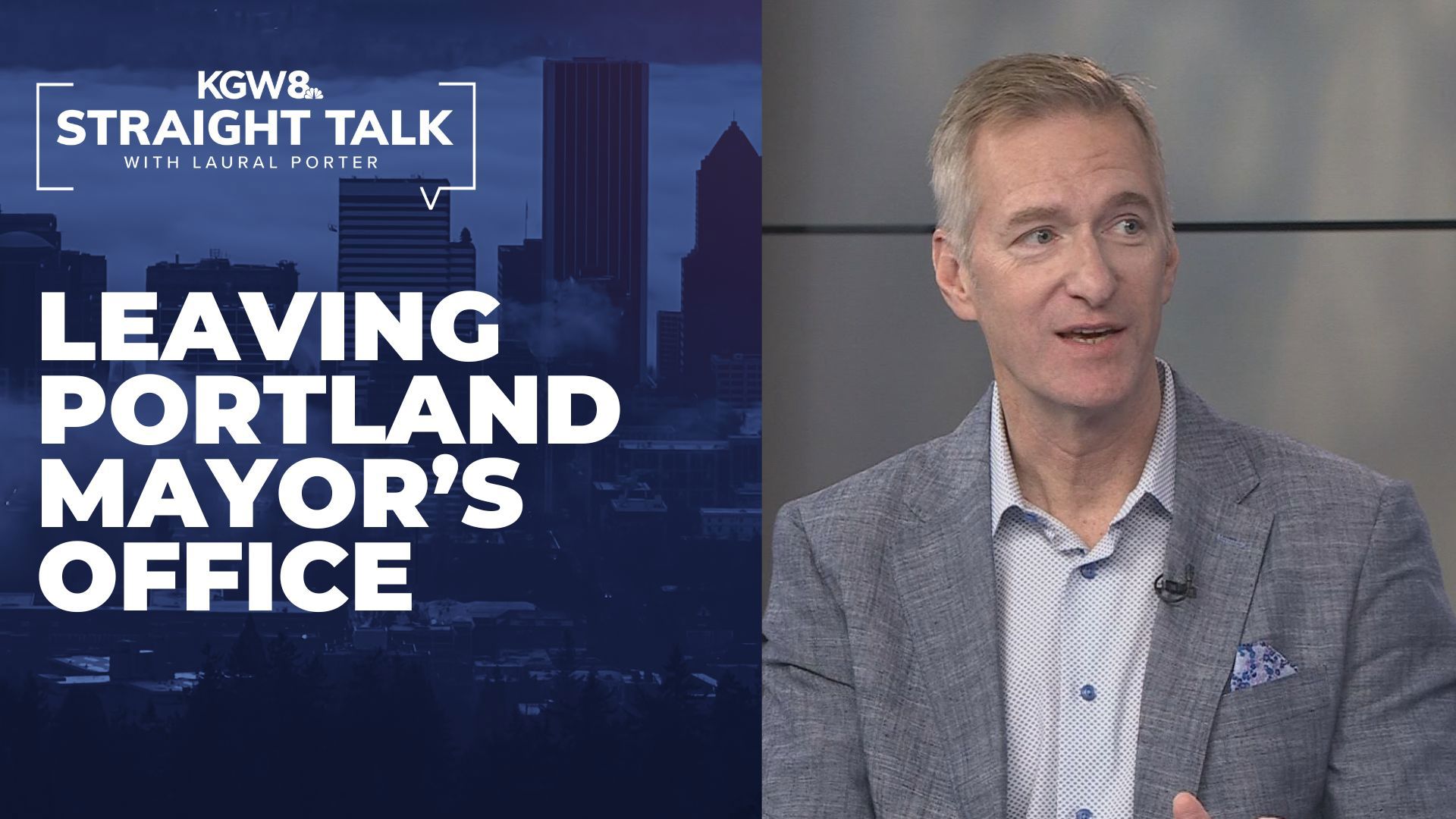PORTLAND, Ore. — Portland Mayor Ted Wheeler is looking back on a transformative, often turbulent eight years in office — tackling civil unrest, homelessness and public safety challenges — before passing the reins to newly elected mayor Keith Wilson.
Wheeler was the first Portland mayor to serve more than one term since Vera Katz, who served three terms from 1993 to 2005. His eight years in office were defined by a series of overlapping crises, from recording-breaking snow and ice storms and heat waves, wildfire smoke events, the COVID-19 shutdown, citywide protests and a surge in homelessness and homicides.
In this episode of Straight Talk, Wheeler talks on his legacy, Portland's revitalization efforts and cautions for the next mayor and incoming city council.
Navigating crises
During his tenure, Wheeler said Portland faced a number of crises from COVID-19, new drugs on the streets to protests that the city was not equipped to handle, particularly the fentanyl crisis.
“We just weren’t tooled up for that," Wheeler said. "So, we had to reinvent government to be able to focus on the priorities of the public and they told us unequivocally that it’s public safety, it’s homelessness, it’s livability and it’s economic recovery and we have.”
Portland experienced a dramatic surge in homelessness in the wake of the pandemic, compounded by a housing affordability crisis. In his first term, Wheeler claimed that every person living on the street would have a safe place to sleep by the end of the year — essentially ending unsheltered homelessness. This wasn’t done.
On reflection, Wheeler said that if he could go back in time, he would not have made a pledge that specific. He said that it "assumes that the world would remain static." Which during his tenure, it did not.
At the time, Wheeler had pledged to create enough new shelter beds for every unsheltered homeless person in Portland, which he said would have been about 1,200 to 1,300 beds. In the last year-and-a-half, Wheeler said the city added around 900 shelter beds.
“We also just didn’t have the foresight to realize that the problem was not going to get better," Wheeler said. "But it was going to get much, much worse. We have far more people now going into homelessness than we did back then and it’s pretty much been a constant increase over time.”
A level of crisis that Wheeler admittingly said he had not anticipated. "But, I also didn't give up," he added.
Wheeler said today the city is leveraging its partnerships with the county and nonprofit groups in a way that was not being done eight years ago.
Yet, his promise to end unsheltered homelessness is now the same pledge of Portland's next mayor, Wilson. A central component of Wilson's campaign was to end unsheltered homelessness in one year.
“I think he’s going to do it," Wheeler said. "If he has the appropriate number of shelter beds. If he can identify a stream of funding and very importantly, he’s going to need service providers to help him run it.”
Wheeler's legacy and next chapter
Prior to becoming Portland's mayor, Wheeler served as chair on the Multnomah County Board of Commissioners after defeating incumbent Diane Linn in 2006. He later was appointed Oregon State Treasurer in 2010 when Oregon State Treasurer Ben Westlund died of lung cancer. He then won reelection and served a second full-term in 2012.
“I didn’t expect to be in politics for 18 years and am looking forward to doing something different for the next chapter of my life," Wheeler said.
His last Portland City Council meeting will be Dec. 18, which will be in the newly renovated city council chambers, ready for the new 12-person city council to take over in January.
Straight Talk airs Saturday and Sunday at 6:30 p.m., and Monday at 7 p.m. Straight Talk is also available as a podcast.

